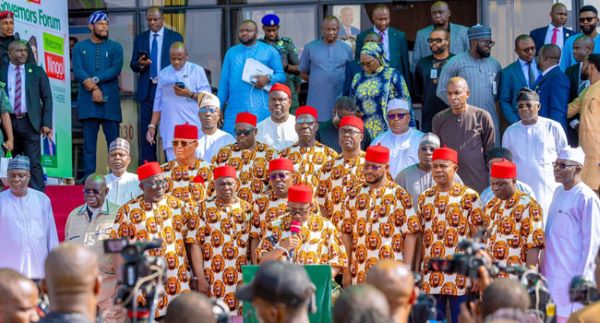Governors elected on the platform of the Peoples Democratic Party (PDP) have welcomed the recent ruling of the Supreme Court on Local Government autonomy.
The apex court, on July 11, declared that it is unconstitutional for state governors to hold onto funds meant for Local Government (LG) administrations. The court also barred governors from dissolving democratically elected Local Government councils, stating that doing so would breach the 1999 Constitution.
A week after the landmark judgment, the PDP governors accepted the apex court’s decision but called for caution while implementing the ruling. The PDP governors made their position known after a meeting held at the Enugu State Government House, Enugu, on Wednesday.
According to a communique issued at the end of the meeting by its Chairman, Governor Bala Mohammed, the Forum stated it “Will continue to support the autonomy of the Local Governments as enshrined in the Constitution of the Federal Republic of Nigeria.” The Forum believes in the efficacy of the local government system, which ensures that governance is brought closer to the people as provided for in the constitution. It holds the Supreme Court in the highest esteem and is committed to obeying court orders.
But…
However, the Forum urges that the implementation of the court decision must be done in a manner that does not create a trust deficit between the federal governments and sub-national governments while also ensuring that the system does not suffer.
The opposition governors also weighed in on the demands by the organized labour for an increase in the national minimum wage, saying the workers’ unions’ demand for a salary increment is “eminently justified” in the face of worsening economic hardship in the country. They warned that the final agreement on the new minimum wage must be realistic and take into account the capacity of all tiers of government to pay.
“While the Forum fully supports labour’s demand, the agreement must take into consideration the ability to pay by the local government, sub-national and federal government,” the communiqué reads. “While negotiations are ongoing, we appeal for restraint in both utterances and actions that could lead to the complete breakdown of law and order and ultimately, the collapse of the economy.”
Recently, the labour unions, federal and state governments, and the private sector have been deliberating on a new minimum wage. The Nigeria Labour Congress (NLC) and Trade Union Congress (TUC) proposed N494,000 as the new minimum wage, citing inflation and the prevailing economic hardship in the country, while rejecting the federal government’s proposed N60,000 offer. To press home their demands, the labour unions on June 3 grounded the nation’s economy over the minimum wage dispute.
On June 7, state governors under the aegis of the Nigerian Governors Forum (NGF) said a N60,000 minimum wage would be unsustainable. At the last meeting of the tripartite committee, organized labour rejected the N62,000 proposed by the government and lowered its demand to N250,000. Though organized labour had insisted on a N250,000 minimum wage, the Federal Government had asked the labour unions to demand a more realistic and sustainable wage. President Bola Tinubu had also directed the Minister of Finance, Wale Edun, to present the cost implications for a new minimum wage.


